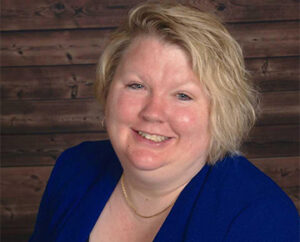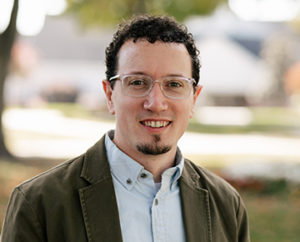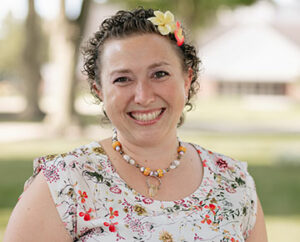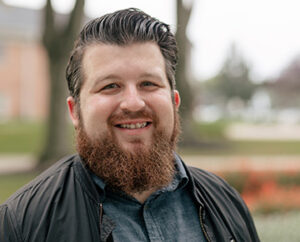At Lancaster Bible College | Capital Seminary & Graduate School, faculty members consistently head back to the classroom to learn and grow in their profession. Along the way, LBC | Capital’s Center for Teaching & Learning actively educates and encourages professors about new teaching methods and how to best support their students as they live out the LBC mission to “educate Christian students to think and live a biblical worldview and proclaim Christ in the Church and society.”
This takes shape in a variety of ways, but one avenue is through educational events such as the 2024 Lancaster Learns Conference. The Feb. 23 event at this year’s host institution, Harrisburg Area Community College, will bring together educators from across the county to learn from workshop sessions that introduce evidence-based teaching practices, invite participants into active learning opportunities or facilitate open-ended discussions around a current issue in higher education pedagogy. To close out 2023, conference organizers called for proposals from area educators interested in leading these sessions.
The Lancaster Learns mission is “to promote quality teaching and learning by building capacity for evidence-based pedagogy and learner-centered instruction through collaboration across the institutions of higher education within Lancaster County.” Past conference workshop topics have included: Active Learning, Co-curricular impacts, Retention, Instructional Technology, Online Teaching, Scholarship of Teaching and Learning and Promoting Diversity.
 The 2024 keynote speaker is Dr. Laura Cruz, a research professor and faculty instructional consultant within the Schreyer Institute for Teaching Excellence at Penn State University. Cruz is an expert in the scholarship of teaching and learning, pedagogical theory, learning design and educational research methods.
The 2024 keynote speaker is Dr. Laura Cruz, a research professor and faculty instructional consultant within the Schreyer Institute for Teaching Excellence at Penn State University. Cruz is an expert in the scholarship of teaching and learning, pedagogical theory, learning design and educational research methods.
For the 2024 event, LBC educators and alumni will present the following topics:
 Justin Harbin, EdD, Director of LBC’s Center for Teaching & Learning/Associate Professor of Education: “Learning from Experiential Learning: Lessons from a Study Abroad Course for Transforming Traditional Classrooms”
Justin Harbin, EdD, Director of LBC’s Center for Teaching & Learning/Associate Professor of Education: “Learning from Experiential Learning: Lessons from a Study Abroad Course for Transforming Traditional Classrooms”
 Robin Jeffers, MEd, LBC Instructional Designer/Adjunct Faculty in the Arts & Sciences Department: “Building Classroom Community Through Theatre Improv”
Robin Jeffers, MEd, LBC Instructional Designer/Adjunct Faculty in the Arts & Sciences Department: “Building Classroom Community Through Theatre Improv”

 Josh Swartz (’15), MDiv, LBC Manager of Instructional Technology/Adjunct Faculty, and William Illingworth (’14), MEd, former LBC Instructional Technologist: “Podcasting for Democratizing Higher Education”
Josh Swartz (’15), MDiv, LBC Manager of Instructional Technology/Adjunct Faculty, and William Illingworth (’14), MEd, former LBC Instructional Technologist: “Podcasting for Democratizing Higher Education”
A sample of additional presenters from area universities include the following:
- Jennifer Fisler, Messiah University: “Candid and Kind: Developmental Feedback on Teaching”
- Matt Bergman, Elizabethtown University: “Fostering Student Engagement and Inclusion Through AI and Universal Design for Learning”
- Nicole Pfannenstile, Millersville University: “Guided Notes, Graphic Organizers and Concept Maps: The Value of Notetaking Tools for Teaching & Learning”
As Harbin helps equip LBC | Capital faculty and staff to live out the college’s mission and teach students to the best of their ability, he is also active in the planning of the annual Lancaster Learns Conferences.
“There are so many deep benefits to participating in Lancaster Learns,” Harbin said. “First and foremost, many attendees in the past have identified the collaboration and camaraderie experienced learning alongside colleagues at area institutions of higher education. The conference has always strived to be a place where faculty can find tangible next steps to grow their own teaching practice in an environment of mutual support and exploration. Since the founding of the conference in 2014, I have both experienced and heard consistently from faculty that attendees always walk away with multiple ideas for their classroom that they can immediately consider implementing.”
Additionally, Harbin added, educators can trust that the ideas shared at Lancaster Learns are not simply fads in pedagogy, but carefully vetted concepts for consideration currently emerging from the scholarship on teaching and learning.
“Beyond this,” he said, “I believe the collaborative nature of the conference provides a truly unique experience for faculty to get to know and grow alongside counterparts at a wide variety of higher education institutions within and outside the county.”
Academic Sponsor Institutions for the 2024 Lancaster Learns Conference include: Central Penn College, Elizabethtown College, Eastern Mennonite University | Lancaster, Franklin & Marshall University, Harrisburg Area Community College, Lancaster Bible College, Messiah University, Millersville University, Pennsylvania College of Art & Design, Pennsylvania College of Health Sciences, Penn State Harrisburg and Thaddeus Stevens College of Technology.
Registration for the conference is now open at LancasterLearns.com; contact info@LancasterLearns.com for further information.